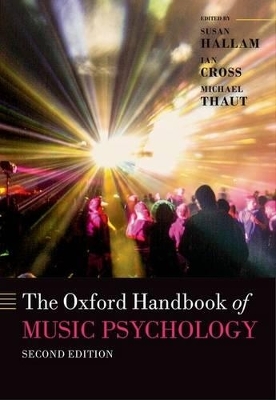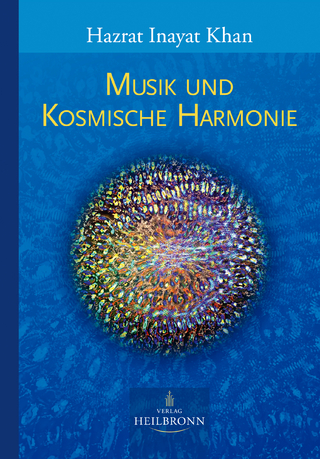
The Oxford Handbook of Music Psychology
Oxford University Press (Verlag)
978-0-19-872294-6 (ISBN)
- Titel ist leider vergriffen;
keine Neuauflage - Artikel merken
The 2nd edition of the Oxford Handbook of Music Psychology updates the original landmark text and provides a comprehensive review of the latest developments in this fast growing area of research. Covering both experimental and theoretical perspectives, each of the 11 sections is edited by an internationally recognised authority in the area.
The first ten parts present chapters that focus on specific areas of music psychology: the origins and functions of music; music perception, responses to music; music and the brain; musical development; learning musical skills; musical performance; composition and improvisation; the role of music in everyday life; and music therapy. In each part authors critically review the literature, highlight current issues and explore possibilities for the future.
The final part examines how, in recent years, the study of music psychology has broadened to include a range of other disciplines. It considers the way that research has developed in relation to technological advances, and points the direction for further development in the field. With contributions from internationally recognised experts across 55 chapters, it is an essential resource for students and researchers in psychology and musicology.
Susan Hallam is Professor of Education at the Institute of Education, University of London and currently Dean of the Faculty of Policy and Society. She pursued careers as both a professional musician and a music educator before completing her psychology studies and becoming an academic in 1991 in the department of Educational Psychology at the Institute. Her research interests include disaffection from school, ability grouping and homework and issues relating to learning in music, practising, performing, musical ability, musical understanding and the effects of music on behaviour and studying. She is past editor of Psychology of Music, Psychology of Education Review and Learning Matters. She has twice been Chair of the Education Section of the British Psychological Society, and is currently treasurer of the British Educational Research Association, an auditor for the Quality Assurance Agency and an Academician of the Learned Societies for the Social Sciences Ian Cross teaches at the University of Cambridge where he is Reader in Music & Science, Director of the Centre for Music & Science and a Fellow of Wolfson College. He has published widely in the field of music cognition. His principal research focus at present is on music as a biocultural phenomenon, involving collaboration with psychologists, anthropologists, archaeologists and computational neuroscientists. His research explores the biological and cultural bases for human musicality, in particular, the mechanisms underlying the capacity for achievement and maintenance of inter-individual synchrony of behaviour, those underlying the experience of meaning in engagement with music, and those involved in the cognition and perception of multi-levelled structure in both music and language. Michael H Thaut received his masters and PhD in music from Michigan State University. He is also a graduate of the Mozarteum Music Conservatory in Salzburg/Austria. At Colorado State University he is a Professor of Music and a Professor of Neuroscience and serves as Executive Director of the School of the Arts and Chairman of the Dept of Music, Theater, and Dance. He has also directed the Center for Biomedical Research in Music for 12 years. Dr Thaut's internationally recognized research focuses on brain function in music, especially time information processing in the brain related to rhythmicity and biomedical applications of music to neurologic rehabilitation of cognitive and motor function. He has received both the National Research Award and the National Service Award from the American Music Therapy Association. He is an elected member of the World Academy of Multidisciplinary Neurotraumatology and in 2007 he was elected President of the International Society for Clinical Neuromusicology.
PART 1: THE ORIGINS AND FUNCTIONS OF MUSIC; PART 2: MUSIC PERCEPTION; PART 3: RESPONSES TO MUSIC; PART 4: MUSIC AND THE BRAIN; PART 5: MUSICAL DEVELOPMENT; PART 6: LEARNING MUSICAL SKILLS; PART 7: MUSICAL PERFORMANCE; PART 8: COMPOSITION AND IMPROVISATION; PART 9: THE ROLE OF MUSIC IN OUR EVERYDAY LIVES; PART 10: MUSIC THERAPY; PART 11: CONCEPTUAL FRAMEWORKS, RESEARCH METHODS AND FUTURE DIRECTIONS
| Erscheinungsdatum | 22.03.2016 |
|---|---|
| Verlagsort | Oxford |
| Sprache | englisch |
| Maße | 186 x 249 mm |
| Gewicht | 1908 g |
| Themenwelt | Kunst / Musik / Theater ► Musik ► Musiktheorie / Musiklehre |
| Geisteswissenschaften ► Philosophie | |
| Geisteswissenschaften ► Psychologie ► Entwicklungspsychologie | |
| Geisteswissenschaften ► Psychologie ► Pädagogische Psychologie | |
| Geisteswissenschaften ► Psychologie ► Sozialpsychologie | |
| ISBN-10 | 0-19-872294-X / 019872294X |
| ISBN-13 | 978-0-19-872294-6 / 9780198722946 |
| Zustand | Neuware |
| Informationen gemäß Produktsicherheitsverordnung (GPSR) | |
| Haben Sie eine Frage zum Produkt? |
aus dem Bereich


